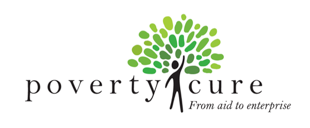The Danger of Dependency
In ancient Rome, the impoverished masses were satisfied in their lowly state by the state providing “bread and circuses.” In other words, they were given free food and entertainment rather than economic freedom along with the opportunity to develop and use their natural abilities. This has been a recurring pattern. Political interests often dictate the creation of generous welfare programs and unconditional aid. A sop is easier to provide than a solution. Unfortunately, these programs often have the unintended consequence of undermining the cultural fabric of poor communities, encouraging what psychiatrist and author Theodore Dalrymple refers to as “the underclass,” a subculture marked by despondency, family breakdown and high levels of crime and substance abuse.
While temporary relief programs may genuinely assist the poor, it is important that these programs be designed to avoid fostering dependency and damaging a community’s social fabric. When people are dependent for long periods of time on handouts—whether from the government or from private charity—their ability to provide for themselves by serving others is impaired and their dignity threatened.
The Capacity of the Poor
In light of mounting sociological data underscoring the culturally destructive effects of long-term social welfare for poor communities, many poverty fighters encourage charities to focus on helping the person caught in poverty develop and employ his creative capacities. They warn that such efforts need to be accompanied by humility and a keen awareness that spiritual poverty exists in every class.
At the same time, this call for humility is distinct from a form of relativism that insists that every worldview, every value system, is equal and nobody from one class or culture should try to impart its cultural treasures to another. Instead, the poverty fighters who emphasize the role of enterprise and capacity development seek to match a humble partnership approach with efforts at spiritual and cultural formation, education and, where needed, training in good work habits and skills. They also tend to emphasize that such efforts need to be shaped by the principle of subsidiarity, which emphasizes the importance of local knowledge and face-to-face compassion. In this way, those seeking to help the poor are better able to identify what the poor actually need, as opposed to what we perceive from afar that they need.
From Paternalism to Partnerships
Doug Seebeck, the founder of Partners Worldwide, tells the story of getting a job as a young agricultural consultant in Bangladesh. As he explained in his interview for the PovertyCure initiative, he went over expecting to teach advanced farming techniques, but as he worked with them face to face, he quickly realized that they were excellent farmers, wringing from their small plots of land an enormous harvest given their resources. So finally he asked them what they thought they needed to boost productivity. They said that it would be great if they could have water in the dry season, since—except for the lack of water—the conditions were far better for farming at that time of the year. There were reserves of fresh water near enough to make this feasible; the problem was that the farmers were too poor and lacking in connections to invest in an irrigation system. Seebeck went to work with them on bringing fresh water to their farms in the dry season, and in this way they were able leverage the agricultural skills that these poor farmers already possessed.
Christian Charity and the Dignity and Capacity of the Poor
Among Christian communities, the power of the poor also can be cultivated and encouraged by remembering that the biblical call to be generous extends to rich and poor alike. This is the core message of International Steward, a non-profit organization begun by Brett Elder to encourage churches in poor regions of the world to practice generosity. Elder points to the Gospel story of Jesus praising the poor widow who gave to God her last two pennies as emblematic of what materially wealth Christians all too often forget: The poor also have a calling and capacity to be generous stewards of the things God has entrusted to them. Often rich Christians see Christians in extreme poverty and, in a rush to help, they forget that the poor also have stewardship capacity, even in conditions that would seem to disallow saving and giving.
When International Steward delivered this message to a church in Nairobi, Kenya, its Sunday collections increased from an average of $188 per week to more than $400. In another case in Uganda, Bishop Hannington Bahemuka took the message of International Steward and, working with his congregation, transformed their war-torn village from one of dependency to one of generosity and a growing independence marked by a successful effort to build their own church and care for war orphans. As they recognized their own dignity and capacity, they began to flourish in ways that before would have seemed impossible.


